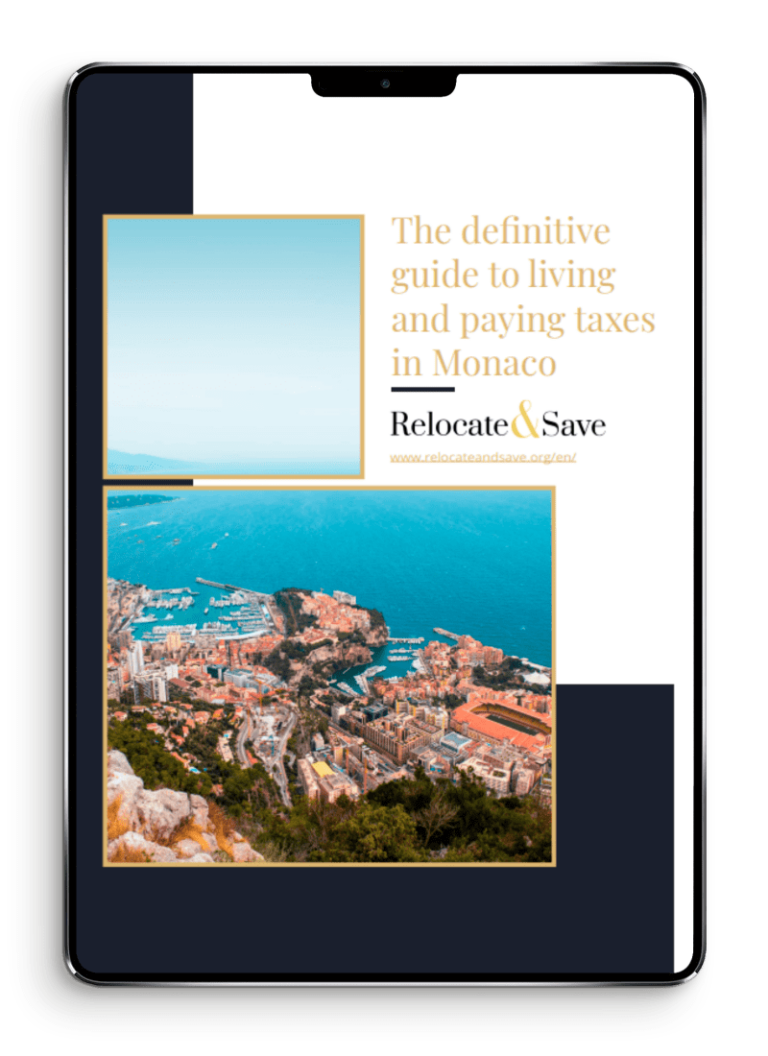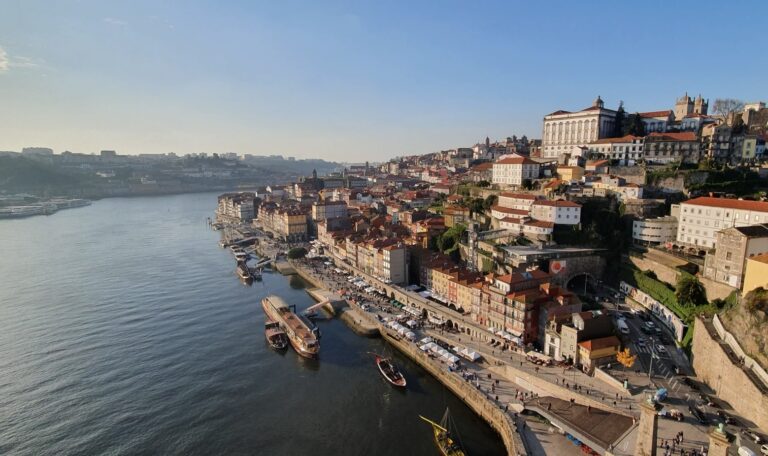Monaco is frequently seen, although erroneously, as a country completely free of taxes. In this guide we’ll clarify what taxes are actually applicable in the Principality and also explain why Monaco is not a tax haven anymore.
Income taxes
The tax attractiveness of Monaco is well-known, since, generally, the principality does not subject its residents to personal income tax, a tax treatment that dates back to 1869. This tax treatment is comprehensive, covering all forms of income regardless of its domestic or foreign origin, including capital gains and passive income. It should be noted that this personal income tax treatment does not apply to French nationals subject to the France-Monaco double tax treaty.
Hence, excluding French citizens, individuals residing in Monaco are not liable for personal income tax within the principality. This means that a resident of Monaco enjoys the privilege of keeping their income, capital gains, and passive income entirely tax-free, regardless of their domestic or global nature.
For those aiming to secure a tax residency in Monaco, the principality requires getting a tax registration. Eligibility for this requires meeting certain criteria, like residing in Monaco for over 183 days annually. In some cases, even a shorter period may suffice provided that the individual can demonstrate strong economic ties to Monaco and establish it as their primary residence.
Wealth tax
Monaco is also free of wealth tax and similar charges on solidarity linked to wealth.
Inheritance Tax and Gift Tax
Inheritance tax in Monaco is levied solely on assets situated within the principality, irrespective of the domicile, residence, or nationality of the deceased.
The rates of inheritance tax in Monaco are determined by the familial relationship between the deceased and the beneficiaries:
- Spouse and direct descendants: 0%
- Civil partners: 4%
- Siblings: 8%
- Uncles, aunts, nephews, nieces: 10%
- Other relatives: 13%
- Non-relatives: 16%
It is noteworthy that the tax on lifetime gifts is similarly applied only to assets located in Monaco, without regard to the donor’s domicile, residence, or nationality.
Regarding gifts within Monaco, they are required to be officially recorded via a notarized deed and are subject to the same tax rates as those for inheritance. However, gifts made to certain charitable organizations or to the Principality itself are eligible for a tax exemption, provided the assets are situated in Monaco.
Monaco’s tax system ensures that while personal income remains untaxed, other forms of asset transfer within Monaco contribute to the principality’s fiscal system.
Corporate Tax
Monaco does impose corporate taxes under specific circumstances. Businesses operating within the principality are subject to corporate income tax if they engage in industrial or commercial activities and if over 25% of their turnover originates from outside Monaco’s borders. Hence, this tax would apply when two cumulative criteria are met:
- Qualitative Criteria: Corporate income tax is levied solely on profits that arise from commercial activities, such as the sale of goods, or industrial activities.
- Territorial Criteria: Corporate income tax comes into effect only if more than 25% of the company’s revenue from the aforementioned commercial or industrial activities is sourced from outside Monaco. Hence, if a company generates at least 75% of its revenue within Monaco’s borders, CIT does not apply.
If those two cumulative criteria al met, corporates’ income would be taxed at 25%.
This structure of the Corporate Income Tax is designed to encourage local economic activity within Monaco while also taxing profits that are largely generated through international operations.
Additionally, Monaco’s tax framework is favorable in terms of profit distribution and debt funding. In this respect, there are no withholding taxes on dividends or interest in Monaco. Moreover, dividends received from qualifying subsidiaries may also be exempt from Corporate Income Tax in Monaco.
This tax regime reflects Monaco’s commitment to promoting a business-friendly environment while ensuring that its fiscal policies are aligned with international standards.
Value Added Tax (VAT) and Transfer Tax
Generally, shopping and other purchase and sale transactions are subject to Value Added Tax in Monaco, similar to the tax system of France due to the EU customs status. Consequently, Monaco adheres to the same VAT rate as France, generally at 20% which applies to a large variety of goods and services, although there are certain exemptions and reduced rates for specific categories.
With respect to the Monegasque real estate sector, VAT is imposed in a similar way to the French model, i.e., applying the standard rate of 20% to real estate dealings. This applies to the sale of undeveloped land, newly constructed properties, or those that have undergone substantial renovations. Should the fair market value of a property exceed the transaction price, VAT is calculated based on the actual market value.
For properties that do not fall under the “new buildings” classification and for land not classified as building plots, like rural plots, VAT is not applicable. In these instances, transfer duties may come into play. The transfer duty rate is 4.5% which applies on the property’s market value if the purchaser is either a private individual or a Monegasque Personal Civil Company (SCP) that meets certain criteria. For other types of purchasers, the rate increases to 7.5%. Additionally, notary fees are incorporated into the overall cost of these property transactions.
Taxes on real estate assets
Other than transfer tax upon the transfer of real estate assets, Monaco does not levy property tax on the ownership on that type of assets.
However, any rental activity is subject to a specific tax. In this respect, a 1% rental tax is levied.
Non-resident income tax
Monaco does not levy an income and capital gain tax on those Monaco sourced income and capital gains obtained by non-residents, what includes no withholding taxes on Monaco sourced income obtained by non-residents.
Other taxes and duties
On top of the taxes described above, Monaco’s tax landscape also includes a variety of levies such as registration fees, stamp duties, and excise taxes on alcohol and tobacco products.
In addition, businesses operating within the principality are required to pay a tax for their business licenses, and employers to make mandatory contributions to social security, which sustain the state’s healthcare and pension systems.
In conclusion, Monaco does not levy personal income taxes on individuals and, under certain circumstances, on companies. This tax treatment makes Monaco an ideal location for people looking to maximize their earnings.
On the other hand, indirect taxes like VAT and special taxes on alcohol and tobacco may apply.
Why no one considers Monaco to be a tax haven
Main article: Is Monaco a tax haven?
The label of “tax haven” does not depend only on the tax burden of a country, but also on the perception of the country by other states and supranational organizations.
And, as of today, virtually no one considers Monaco a tax haven. These are the reasons:
- Monaco adheres to OECD standards and participates in its Common Reporting Standard (CRS).
- Monaco has information exchange agreements (TIEAs) with the EU, the United States and numerous other countries.
- Monaco has stringent anti-money laundering regulations.
- Monaco requires companies based in the country to show “economic substance”, i.e. to prove that they actually operate from the Principality and are not mere “shell companies”.
For all these reasons, Monaco has not been considered a tax haven by any major country for more than a decade.
Even so, Monaco is still wrongly defined as a “tax haven” by some simply because of the contrast of its tax framework with that of its neighbors: while in old Europe countries have many and very high taxes, Monaco has only a few and low taxes.
Let’s see exactly which taxes exist in Monaco and which ones do not.
At Relocate&Save, through our branch MonacoAdvisers, we have been helping entrepreneurs, high-net-worth individuals, sportsmen and women, and people from the world of cryptocurrencies to transfer their tax residency to Monaco for years.
Our presence and contacts in Monaco make us an ideal travel partner for this arduous task. So if you have questions about Monaco and would like us to help you with the process, please write to us at [email protected].



 All communications are encrypted and will be treated with absolute confidentiality. Your data will never be shared with third parties.
All communications are encrypted and will be treated with absolute confidentiality. Your data will never be shared with third parties. 




